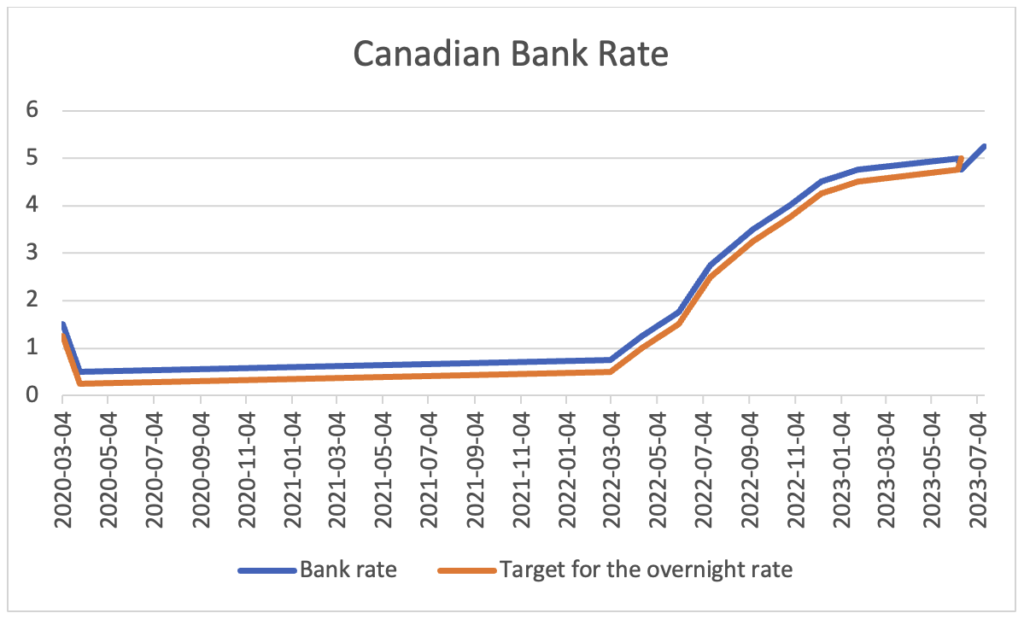“In the current climate, there’s a compelling argument for investing in real estate. It acts as a reliable safeguard against inflation; there is a robust demand; and a significant shortage. After all, everyone requires a place to call home.”

Canada’s Population Boom: So, Canada is experiencing some serious population growth! In fact, by the second quarter, we hit a 3.1% growth rate – that’s the highest since 1957, and globally the 9th highest annual population growth rate in the world!
That’s the equivalent of adding a city roughly the size of Calgary to Canada’s population in a single year.. The Government’s also got big plans, with a target of 1.5 million new immigrants joining us in the next three years.
“The government welcomed the largest number of immigrants in a single year (2022), according to Immigration, Refugees and Citizenship Canada, and at the same time, the national average home price soared to a monthly high of $804,900 – a 31 per cent increase from 2021,”
And guess what? More international students are coming to Canadian universities too; we saw a 31% jump in 2022 alone. Most newcomers usually rent when they first land here, so the demand for rentals is definitely going up.

Housing Supply Struggles: Now here’s the tricky bit. Building houses has gotten way pricier during the pandemic. We’re talking about a 56% increase since 2019, thanks to things like supply chain issues, fewer workers, and high interest rates. Costs rose by 7.5% compared to last year and are a whopping 56% higher than in 2019. Because of this, there’s been a 30% drop in investing in single-family homes as of July. This has made the mismatch between housing supply and demand even more significant over the year. So, don’t expect house prices to plummet anytime soon.
That’s led to a big drop in investment in multifamily housing. And the gap between what we need and what’s available keeps widening. Some experts even say we need an extra 3.5 million units by 2030 to make housing affordable!

A Focus on Multifamily Housing: With house prices skyrocketing and more people coming in, apartments and rentals are becoming the go-to housing option. But there’s a snag – we don’t have enough of them. Forecasts say vacancy rates might stay below 2% until 2024, which could push rent prices even higher. While the Enhanced GST Rental Rebate is a step in the right direction to help boost housing, there’s a lot more work to do to keep up with the ever-growing demand.

The rise in interest rates is directly making homes pricier and it’s not looking great for the upcoming years. Just last year, the average rent went up by a whopping 18.3% when someone new moved in, according to CMHC. Plus, there’s a record-breaking speed at which the gap in market rent is increasing. Rentals.ca even mentioned that by July 2023, the average asked rent hit a record of $2,078, marking an 8.9% rise year-on-year.

But wait, there’s more. The cost of getting a mortgage? It shot up! On average, the monthly payment for new mortgages went from $1,415 in early 2019 to $1,983 in early 2023. This is pushing a lot of folks away from buying homes and more towards renting. Even those who already own houses might think twice before moving because they might not get approved for a new mortgage with these increased rates. And guess what? This is causing a dip in the number of homes available for purchase.

With record high immigration rates and skyrocketing interest rates, this combination is making houses less affordable and we’re not building enough to keep up with the demand. Looks like the situation might even get a bit rockier. And now, even though house prices have gone way up over the past 25 years, recently, rents have started to climb even faster. Makes sense, right? If people can’t buy homes, especially when the Bank of Canada is hiking up rates, they have to rent. And with more people coming in than we have houses for? Well, everyone’s diving into an already tight rental market. So, expect rents to shoot up even more, especially since about 30% of the cost of building new rental spaces goes straight to taxes and interest rates.

There’s a shortage in the apartment rental market too? With Canada’s population nearing 40 million by the second quarter and the government aiming to welcome 1.5 million newcomers in the next three years, more people are looking towards apartments for housing. It’s so tight out there that by the end of the year, less than 2% of apartments might be vacant. And rents? They’re predicted to rise by about 6.1% annually. So, it’s getting tougher for many Canadians to find affordable rentals. Construction isn’t keeping up with demand, especially with a 20% drop in building multifamily homes as of July. With the population still growing, we really need to tackle these challenges and make housing more accessible for everyone.

The new tax break, called the Enhanced GST Rental Rebate, is going to be a real game-changer for apartment builders. You see, building apartments is different from condos. With condos, builders can sell units and get their money even before they finish building. But apartment builders? They need to wait till the apartments are built and rented out before they start seeing real profit. That’s a longer game!
Now, many builders have been shifting to condos because it’s just easier to get money upfront, especially with construction costs skyrocketing by 56% since 2019. Plus, high interest rates haven’t been helping anyone. But with this tax break, some of those paused apartment projects might actually move forward.
My conclusion investing in multi-family purpose-built rental seems to be logical investment choice.
